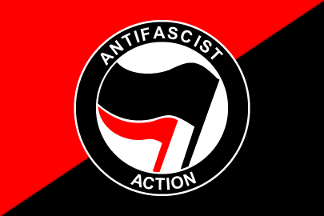- 1 Post
- 9 Comments
In any other country this would result in rapid SWAT equivalent or even military deployment.

 5·4 months ago
5·4 months agoOh sweet I get to vent about The August Few: Amygdala by Sam Fennah.
So Sam is primarily a youtuber, he makes animations with these very unique and somewhat disturbing characters and over time he made a bit of a narrative using them, eventually he made it into a 1000 page book. As one might expect looking at his animations this book is very weird, it’s got some extremely interesting and alien worldbuilding which challenges the reader a lot. As a piece of art this book is incredibly effective in that it makes the reader reflect on it’s far reaching themes, but as a book I really kinda hate it.
At the core of the book is the question of what the ideal society is, but only one option is ever really presented, what I can only describe as anarcho-dawinism. When one character opposes this state and proposes the possibility of a kinder and more inclusive society she is betrayed, hung from a balcony over a crowd, she orgasms while choking to death, and “When the body was lowered, it was groped, defiled, spat upon, split.” This is not presented as a bad thing, simply as the people rejecting her idea, the language used is very “marketplace of ideas.”
At the start of the book Sam tries to disavow himself of what he wrote in an author’s note, part of which reads: “The views of the characters are not the views of the author. This book is not a promotion of ideas, but an exploration of ideas.” Sam did not need to make the characters orgasm when they died, he did not need to make them reproduce via necrophilic rape, he did not need to make every characters a literal baby eating cannibal, and he did not need to present social-darwinism as an ideal society, but he did, he choose to write these things.
I hate this book, I read it over a year ago and I haven’t been able to stop thinking about it, it is a great piece of art.
 13·5 months ago
13·5 months agoRefrigerating bananas pretty much stops them ripening, so if you have some fully yellow bananas you can pop then in the fridge and it will stop them from over ripening for a few days. The peel will still go brown but the flesh remains as it was when you put them in. You definitely shouldn’t put green bananas in the fridge, but with yellows it buys you some time.
While ideally you’d want a column for serving size, package size, and per 100g, if you’re only gonna have one it should definitely be the per 100g since that’s the only one that allows you to easily compare between different brands and products.

 1·7 months ago
1·7 months agoNestlé isn’t the only brand of baby food available in those markets, they sit right next to products that do have that “no added sugar” label. But that healthier alternative is not what sells better, the cheaper ones do, why? Because the consumers in those markets either can’t afford the healthy food or they lack the education to know the importance of a good diet.
What products are available on a market is a reflection of the purchasing habits of the consumers in that market, and those habits are a result of the macro socioeconomic factors of the region. If Nestlé changed all their products to be “no added sugar” right now then the prices of those products would need to be bumped up slightly which would mean the consumers would shift to another brand that’s cheaper which has the same issue and hey presto nothing has changed.
Nestlés products having added sugar is not the problem it is a symptom.
So what do we do if we want to solve these big problems? Well that’s not easy, it largely depends on the governments and people of those regions, but we can help. There are charities like plan-international.org which tries to directly tackle inequality and education, but driving economic activity can also help, maybe next time you go grocery shopping you buy a Senegal peanut oil or a pack of batteries from The Philippines. These are big hard problems that won’t be easily solved, but if we are to have any chance to fixing them we need to be able to identify what the problem is, getting mad at a brand is a lot easier than recognizing the underlying issues.

 213·7 months ago
213·7 months agoThis really doesn’t have much to do with Nestlé. This is about the purchasing habits of consumers in different markets as influenced by global wealth inequality, lacking education, and inadequate access to healthcare. While large corporations absolutely have certain influence on those factors, this issue of more sugar in some products is so far downstream from the real problems that it’s just a useless distraction.

 3·1 year ago
3·1 year agoI think the thing that got the biggest reaction out of me was in the DLC when you figure out how to bypass the bell alarm.
spoiler
Having to burn yourself alive made my skin crawl and then walking in front of the statues and not hearing the bell, being confused for a moment, then realizing that a corpse can’t hear was chilling.

 3·1 year ago
3·1 year agospoiler
Up until that point many players will have thought they could stop the supernova, that they could save everyone, they thought that was the point of the game, how you won. To then be faced with the fact that there is no stopping it and that the star has just reached it’s end. It’s like getting a bucket of ice water dropped on you realizing that there is no saving anyone, everyone will die, this system will be destroyed, this universe will end.
Accepting that end is hard, but I think the ending showing that all ending are also new beginnings, that everything is built on what came before goes a long way to letting people be ok with it.
Fuck I love this game.:::



Clip from Doobys debut stream where she talks about various personal details. She doesn’t outright say her name but she deliberately drops more than enough details that anyone can just look up her IMDB.
Yes there is absolutely a problem of stalkers and harassment which is why it should obviously be up to the talent themselves if they want to be credited by their real name or by an anonymous stage name, the important thing is that they own the name and can therefore use it in contexts outside of hololive.
I think talent should be able to use the publics knowledge of their work with hololive to further other projects, that’s the whole point of being credited, to build fame to drive audiences to their future endeavors. These are professional performers often at the start of their careers, building an audience is often even more important than simply having the experience, movie studios don’t pay Tom Cruise millions just because of his acting skills, they do it because his very name is valuable and will increase viewership. Credit holds tangible value which the hololive talent are being denied.
As for the specifics of the contract, obviously Cover doesn’t publish those for general viewing, but based on the talents behaviors around the subject we can infer quite a few things. Some talent when speaking independently will sometimes allude to “their other job” or some such and lean on their audiences knowledge to fill in the blank, but they will always stop short of mentioning any specifics, no names, no places, and they will never say “hololive”. And this holds true even after they have left, which I find particularly concerning. From this we can infer that the contract is fairly strict in the non disclosure department. Of course this is ultimately all speculation and conjecture but given that none speak openly about it, it seems unlikely to be of the talents own choice.